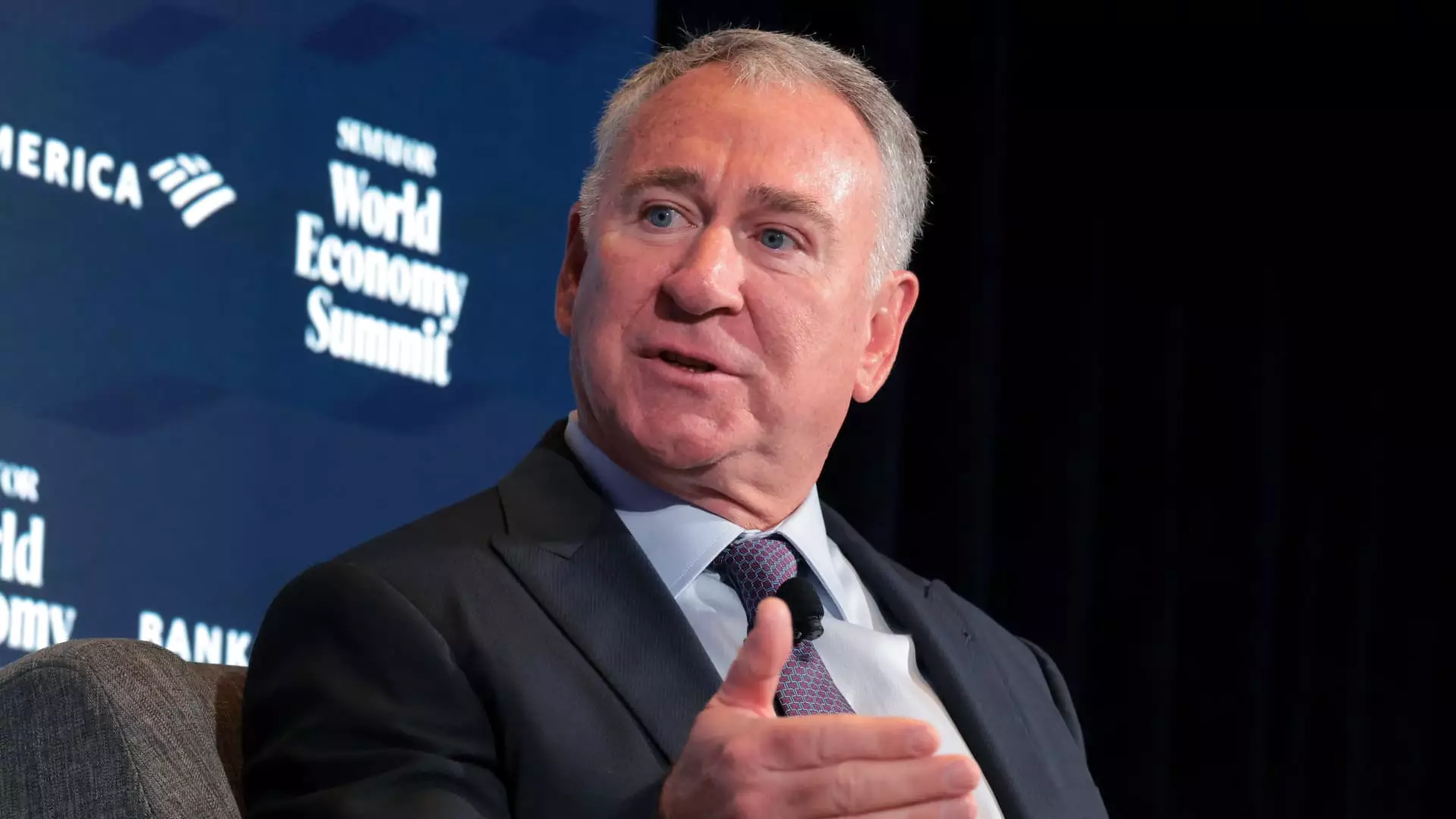Ken Griffin, the prominent CEO of Citadel, has surfaced as a crucial voice expressing alarm over the implications of Donald Trump’s aggressive trade policies. At a recent seminar in Washington D.C., Griffin underscored a sentiment that resonates deeply not just in Wall Street corridors but across the global economic landscape: America is losing its status as a universal brand. It’s not just about tariffs and trade wars; it’s about the very fabric of what America represents to the world. Once a beacon of financial stability and cultural aspiration, the nation’s recent moves risk irrevocably tarnishing this cherished identity.
The Shockwaves of Tariffs
Trump’s recent imposition of unprecedented tariffs has sent shockwaves through financial markets. Wall Street’s volatility became a case study in chaos, as investors grappled with uncertainty. Days after this implementation, the administration’s abrupt announcement of a 90-day pause on a majority of the heightened tariffs—excluded China, of course—demonstrated a haphazard approach to trade negotiations. To those tuned in, it felt like a reactive measure rather than a strategic maneuver. The erratic nature of these policies reflects a troubling disconnect between governance and economic prudence, contributing to rising Treasury yields and a diminishing dollar value in comparison to other currencies.
Investor Sentiment Shifts
Griffin points out a chilling reality: investors are gravitating away from U.S. Treasury bonds, historically seen as the safest houses for their money. The suggestion that America, long perceived as the ultimate sanctuary for capital, is now losing its allure is alarming. This shift in sentiment erodes investor confidence and dilutes America’s economic standing abroad. The erosion could have long-lasting implications not just for the markets but for the financial livelihoods of ordinary citizens. For Griffin, the brand magnitude of U.S. Treasuries is unparalleled. It has sustained America’s global leadership for decades, and jeopardizing its reputation is tantamount to inviting market volatility and economic instabilities.
A Call for Thoughtfulness
Griffin’s insistence that leaders should act thoughtfully in their endeavors resonates with common sense. Brand equity is fragile; once damaged, the road to recovery is labyrinthine. It raises a vital question: can leaders such as Trump and his administration adequately appreciate the implications of their words and actions on a global scale? When you are at the helm of an emblem like the United States, it is imperative to think beyond short-term gains and focus on upholding and strengthening the brand. The stakes are high, and as Griffin warns, reckless actions threaten to tarnish a legacy that has taken lifetimes to build.
Political Donations vs. Personal Convictions
Interestingly, Griffin’s position complicates the conventional narrative of party allegiance. He voted for Trump and financially supported Republican initiatives yet stands in sharp opposition to the president’s trade approach. This tension illustrates a deeper dilemma faced by many in the political landscape: how to balance personal convictions with party loyalty. Griffin’s evolution as a critic of Trump’s trade policies may highlight a growing recognition among business leaders that unregulated populism can wreak havoc. It begs the question of whether partisan lines should blur when national interests and reputations are on the line. Griffin’s duality may serve as an inspiration to corporate leaders torn between benefiting from political ties and protecting the businesses they value.

